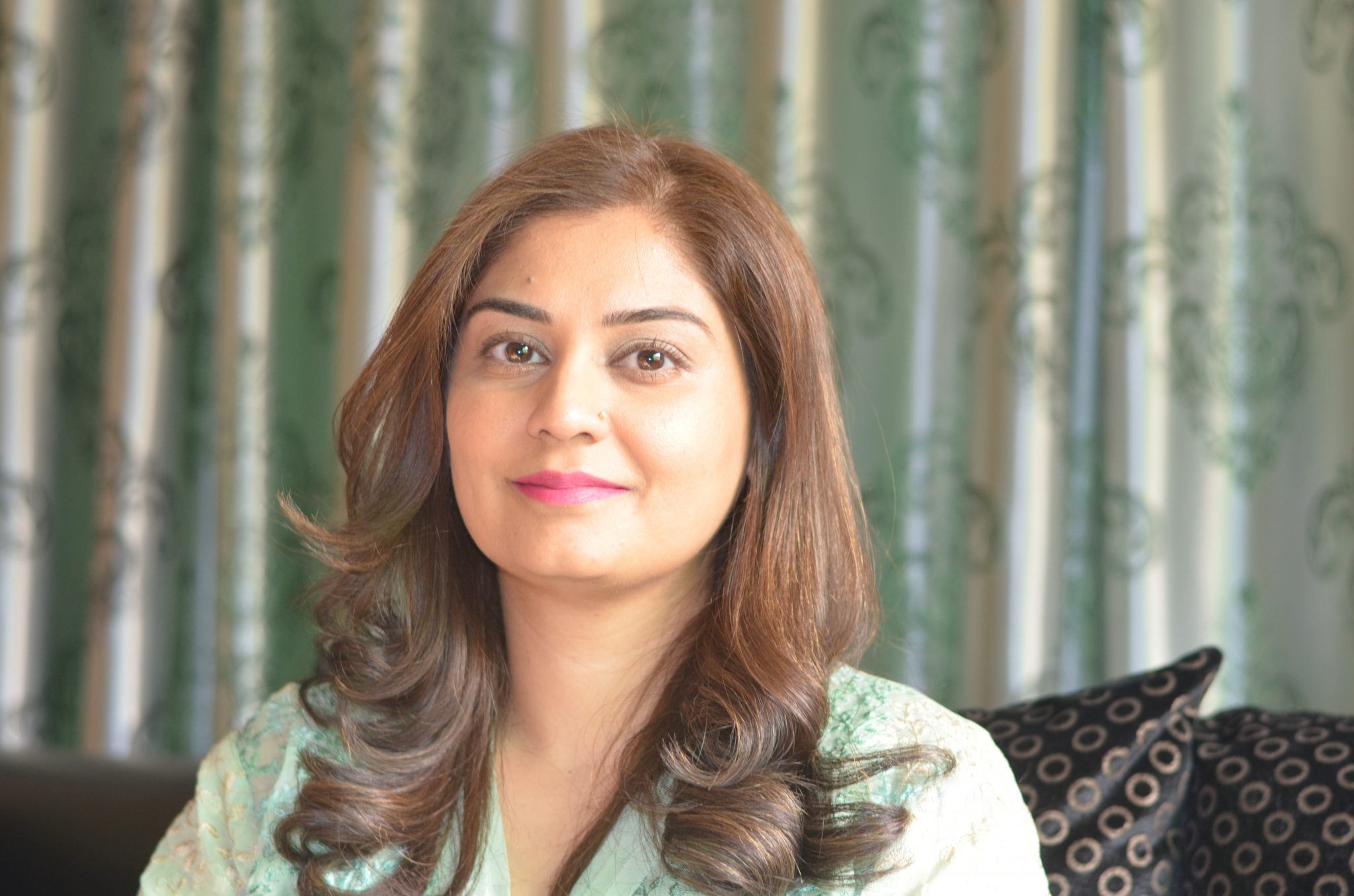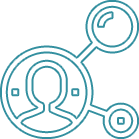In this latest series of articles, we are publishing interviews of women who are working as a professional or a student in the technology sector. The objective is to highlight their work and contribution to the industry as well as to the community.
In these interviews, you will find women working in technology to solve real-world problems, to break stereotypes and to create the next big impact on the tech industry. This series of interviews shows that even with the lowest rate of women participation in the labor market in Pakistan, there are still lots of smart women who are creating and using technology to work wonders.
Today, we are featuring Sadia Beg. Read on to know more about her work and get inspired.

Tell us a little about yourself, your background, your education, and your work.
My name is Sadia Beg and I am a behavioral psychologist. I lived, studied, and worked in Denmark until 2015 where I moved to Islamabad along with my family because my husband had an opportunity to head a global IT organization. This was a ”dream come true” for us because both I and my husband always wanted to work for Pakistan and play our roles in the progress of our country. I have an M.Sc. in Psychology and Business Administration from Copenhagen Business School, Denmark. I worked for 5 years in Denmark in different global companies in various positions. In Pakistan, I chose to start my consultancy as I found it hard to find any existing OD organizations that were working with the concepts that I wanted to implement in my practical work. In my consultancy, I offer development for both organizations and individuals that help them improve their performance both in professional and personal arenas.
What are your future plans/aspirations? What impact it will have on the community/society/your team/your project?
My ultimate goal is to develop leadership qualities rooted in strong Emotional Intelligence competencies in as many people as possible. It is my firm belief that leadership should not be restricted to certain positions or designations, rather every organizational member should have an opportunity to enhance their leadership abilities and find the best version of themselves. In my counseling service for individuals, I also strive to help people find the best versions of themselves so that they can live their lives to the fullest and also can enable other people around them rather than limiting them. If everyone in the society can find the best versions of themselves, we will, ideally, end up with a society that performs its best in complete harmony.
Please brag about your career accomplishments, what are the things you are really proud of?
I was married at an age of 18, right after my F.Sc., and moved to a stranger country, Denmark. I continued my studies after my marriage and eventually completed my master’s in 2016. My journey started at a language school where I had to learn the Danish language to continue my studies further. After that, I studied in college for three years and then in university, Copenhagen Business School, for 5 years. In the meantime, I had three kids and a household to take care of. My husband and in-laws were extremely supportive of my ambitions and it helped me in achieving my goals with top results. I worked in Denmark in global organizations like Colgate-Palmolive and Lundbeck A/S in significant positions. In my consultancy in Pakistan, I have developed, designed, and implemented several Leadership Development Programs for different organizational levels in a global IT company. Furthermore, I also ran several coaching programs for interns to make their onboarding process smooth and prepare them for upcoming challenges of work and life. Along with my organizational engagements, I have been continuously involved in several volunteer projects especially related to the education of underprivileged children. Recently, I also started a youtube channel where I share information about emotional intelligence and competencies that are relevant to it.

What has been your best education/career decision and why?
At Copenhagen Business School, I had an opportunity to work with a convergence of two very different disciplines, namely Psychology and Business Administration. I found this combination very interesting and that is when I knew that I wanted to work with human development in any form or shape. This is what lead me to my current occupation, a behavioral psychologist. In my line of work, I have had an opportunity to help people change their behaviors in a way so that they can perform their best and when the performance of organizational members increases, the productivity of the whole organization reaches a whole different level. In my counseling practice for individuals, I also get a chance to help people see life from a different perspective and find happiness and strength from within that is most reliable and durable. My developmental interventions are rooted in principles of process consultation that make sure that the change in people’s behavior is durable and long-lasting and not short-term and temporary. My work is my passion and choosing my profession was the best career decision that I made.
What’re the best lessons you’ve learned?
Well, I am still learning something new every day. But, so far, the best lesson I have learned is that the most valuable quality one can acquire is to be able to see the same thing from many different perspectives. This ability not only gives you endless opportunities to be innovative but also makes it easier for you to be assertive, empathetic, and independent.
Which woman inspires you and why?
It is hard for me to mention one particular woman who inspires me. I see so many women on different social levels fighting battles on more than one fronts. Some are trying to help their families, some are trying to build their identities as individuals, some are working hard to break stereotypes against all odds and some are trying to raise the next generation to the best of their abilities. All these women inspire me who are making efforts in their respective fields to do something different.
Do you think Pakistan has changed as a society, in terms of accepting career-oriented women? What needs to change to help more women come forward?
Although the change is slow, it is taking place and there is a higher acceptance of women who are career-oriented as compared to a decade ago. What needs to change for more women to come forward is the perception that a woman has limitations because of her gender. A lot of limitations are internalized and normalized in our society and are believed as “the truth”. For example, the assumption that “the most important purpose of a girl’s life is to get married”. Most of the efforts of girls and their families are built around this assumption, to achieve this ultimate goal. Instead, if we replace this assumption with; “the most important purpose of a girl’s life is to become an effective member of the society”, the focus of our efforts as girls and families would change entirely, resulting in different outcomes.
What will be the biggest challenge for the generation of women behind you?
I believe that the whole paradigm of “women as workforce” has shifted remarkably over the past decades in our part of the world. As mentioned before the corporate world is more open and accepting towards women and it is gradually becoming normalized that women are equally important in the progress of society as men. Therefore, I feel that one of the major challenges for the upcoming generation is not necessarily posed by the environment but more by any limiting beliefs that they might have about their abilities. This can be caused by the lack of positive self-regard, lack of confidence, lack of awareness about their strengths, etc.
Another challenge that women have been facing for ages and, I am afraid, the upcoming generations will also face is the one of sexual harassment. The major issue is a lack of a platform where women can speak up about their experiences regarding harassment without being subject to victim shaming. If we, today, put the effort in creating awareness about harassment and taking measures to minimize it effectively, we can make this challenge relatively easy to some extent for the upcoming generations.
If you could change one thing about the tech industry/business, what would it be?
I do not belong to the tech industry per se. However, I have been attached to an IT organization as an external consultant and have heard as a coach different challenges that women have in the industry. For example, I have heard that it is a common perception in the IT industry that girls are better at QA rather than coding and a lot of girls choose to work with QA even when they want to code. Now, limiting beliefs like this can waste a lot of potential in girls without even giving them a chance to do what they want to do. If I could change one thing, it would be perceptions and beliefs like this.
How can WomenInTechPK help you and other women?
I think WomenInTechPK is a brilliant platform for networking which is extremely important in the present corporate world. So, the best way to help me or other women will be to be the bridge between different professions and expand the web of networks so that more and more stakeholders can benefit mutually from each other.
You can follow Sadia Beg using her profiles below, and please do not hesitate in hiring her for your next project.
Email: begsadia@hotmail.com
LinkedIn: https://www.linkedin.com/in/sadia-beg-213b092a/
Facebook: https://www.facebook.com/arsaconsult
YouTube: https://www.youtube.com/channel/UCdiRCyy4THdXlNXhF1zH6Iw?view_as=subscriber
Website: http://www.arsaconsult.com/



